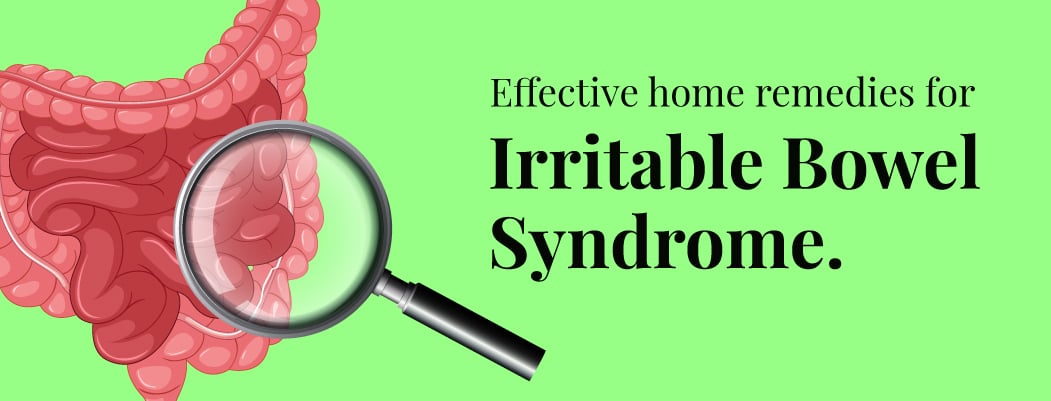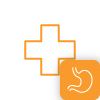How to cure Irritable Bowel Syndrome
December 5, 2022

Irritable bowel syndrome, or IBS, is a group of signs that affect your digestive system. It is a common but unpleasant digestive disease. Excessive gas, cramps, and abdominal pain are symptoms of IBS.
Table of Contents
What exactly is a functional GI condition?
Functional gastrointestinal (GI) disorders include IBS. These ailments, also called illnesses of gut-brain symbiosis, are linked to issues with how your gut and brain function together.
Your digestive tract becomes extremely sensitive as a result of these issues. They alter the contraction of your gut muscles as well. Constipation, diarrhoea, and abdominal pain follow as a result.
Symptoms of IBS
IBS symptoms frequently include:
- Stomach ache
- Cramps
- Gas and bloating
- Gas
- Diarrhoea
People with IBS frequently experience periods of both diarrhoea and constipation. Gas and bloating symptoms normally disappear following a bowel movement.
IBS symptoms don’t always last a long time. They may be able to resolve this but then return. However, some people do experience persistent symptoms.
IBS pain
IBS discomfort might resemble cramps. You will also feel at least two of the following in addition to these cramps:
- Some discomfort reduction following a bowel movement.
- Change in the frequency of your bowel movements.
- Change in the appearance of your stools.
IBS and diarrhoea
One particular variety of IBS is diarrheal IBS. Your big intestine is mostly impacted. Prevalent faeces and nausea are frequent symptoms of IBS with diarrhoea. IBS sufferers who experience diarrhoea sometimes experience bowel incontinence.
Constipation and IBS
Constipation-related IBS is a condition that usually affects teenagers and young adults. The most typical symptoms of this type of IBS include constipation, hard, less frequent stools, and stool hardness.
Stress and IBS
Your neural system plays a major role in regulating your digestive system’s automatic movement, or motility. Nerve damage from stress might cause your digestive system to become hyperactive. If you have IBS, your colon may react strongly to even a small digestive disruption. The immune system, which is impacted by stress, is also thought to have a role in IBS.
Also Read: Immune-Boosting Foods
How does having IBS impact the body?
The colon muscle contracts more frequently in IBS sufferers than in healthy individuals. Cramping and pain result from these contractions. Additionally, IBS people often have reduced pain tolerances. Further, research has indicated that an excess of microorganisms in the GI tract may exacerbate IBS symptoms.
What other names are there for IBS?
- Irritable Bowel
- Irritable colon
- Spastic colon
Nervous stomach since symptoms frequently appear when experiencing emotional stress, tension, or anxiety.
How is IBS diagnosed?
Consult your doctor if you’ve been experiencing unpleasant GI problems. A medical history and physical exam are the initial steps in diagnosing IBS. Next, your doctor will question your symptoms:
- Do you experience bowel movement pain?
- Have you noticed a change in how frequently you urinate?
- Has the appearance of your stools changed?
- How often do your symptoms occur?
- When did your signs first appear?
- Which medications are you taking?
- Have you lately had a difficult situation or a recent illness?
You might require additional testing depending on your symptoms to confirm a diagnosis. For example, blood tests, stool samples, and X-rays can rule out other conditions that resemble IBS.
Do I need to see a gastroenterologist?
Consult your primary care physician first if you are experiencing IBS symptoms. Your doctor could suggest that you see a gastroenterologist.
A gastroenterologist is a medical professional who focuses on identifying and treating conditions affecting the digestive system, such as
- IBS
- Colon (colorectal) cancer
- Liver disease
- Swallowing and oesophagal disorders
- Pancreas disorder
How to manage Irritable Bowel Syndrome
Dietary changes:
Dietary changes may help with bloating stomach pain, and diarrhoea. For instance, limiting one’s caffeinated beverages and fatty meals may help someone with IBS and diarrhoea. This is because caffeine and fatty foods increase colonic contractions.
Eat less food that contains carbohydrates that are poorly digested in the small intestine if you have bloating and abdominal pain. For instance, large amounts of foods like lactose, fructose, and sorbitol may increase intestinal gas production and worsen IBS symptoms like bloating, diarrhoea, and/or stomach pain.
These fermentable carbohydrates are present in many healthful foods, including fruits and vegetables and fibre, another cause of intestinal gas. Finding the ideal balance of wholesome meals might be challenging if you have IBS.
No matter what diet you are on, consulting a nutritionist will ensure you get all the necessary nutrients.
Activity changes:
- Regular exercise
- Avoid smoking.
- Try some relaxation techniques.
- Eat more frequent, smaller meals.
Keep a food journal to identify the meals that cause IBS flare-ups. Red peppers, green onions, red wine, wheat, and cow’s milk are common triggers.
Home remedies for Irritable Bowel Syndrome
Without the aid of medicine, certain lifestyle adjustments or at-home therapies may assist in reducing your IBS symptoms. These lifestyle modifications include, for instance:
- Taking part in regular physical activity
- Reducing coffee consumption because it stimulates the intestines
- Eating smaller meals
- Reducing stress (talk therapy may help)
- Consuming probiotics, or “good” bacteria, which can reduce gas and bloating. These bacteria are often present in the intestines.
- Avoiding spicy or deep-fried foods
General suggestions for easing symptoms of irritable bowel syndrome (IBS)
| Do’s | Dont’s |
|---|---|
| Cook meals with fresh ingredients | Do not skip meals |
| Keep a food journal and note any symptoms you experience; try to stay away from anything that makes your IBS worse. | Do not eat too quickly |
| Exercise well | Do not eat fatty, spicy or processed food. |
| Follow relaxing techniques | Do not drink more than 3 cups of tea or coffee a day |
Also Read: Importance Of A Balanced Diet
How to stop farting, cramping, and bloating
- Take oats (such as porridge) routinely, consume up to 1 tablespoon of whole or ground linseeds every day.
- Avert eating items that are difficult to digest (like cabbage, broccoli, cauliflower, brussels sprouts, beans, onions and dried fruit)
- Avoid items with the sweetener sorbitol.
How to reduce diarrhoea?
- Reduce your intake of high-fibre foods, including wholegrain meals, nuts, and seeds, as well as brown bread and brown rice.
- Avoid items with the sweetener sorbitol.
People also ask
1. How do you feel when you have irritable bowel syndrome?
Stomach cramps or pain are typically severe after eating and better after going to the bathroom. Your stomach may feel uncomfortably full and enlarged if you are bloated. You may have watery stools and occasionally need to stool suddenly if you have diarrhoea. Constipation might cause you to strain when you stool and feel like you cannot completely empty your bowels.
2. What are the 3 types of IBS?
- IBS with Constipation (IBS-C): Most of your faeces are lumpy and firm.
- IBS with Diarrhoea: Most of your stool is watery and loose.
- IBS with mixed bowel habits ( IBS-M): You experience both loose and watery bowel movements and hard, lumpy bowel movements on the same day.








